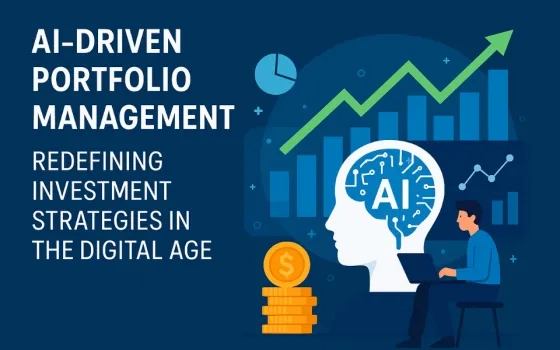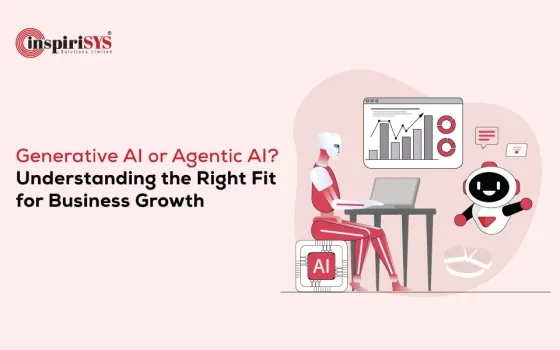In an era defined by rapid technological advancement, Generative AI has emerged as a transformative force across numerous sectors, and sales is no exception. With the integration of generative technologies into business operations, companies are now capable of reshaping their sales processes, enhancing productivity, personalizing customer interactions, and achieving unprecedented growth. This article delves deep into what Generative AI for sales truly entails and why it is becoming a pivotal component of modern business strategies.
Understanding Generative AI in the Sales Context
Generative AI refers to a subset of artificial intelligence that is capable of generating text, images, code, and even entire conversations based on input data. Unlike traditional AI systems that follow predefined rules or models, generative AI learns patterns from vast datasets and creates new, original content that mimics human output. When applied to sales, this technology powers applications that can write persuasive emails, generate sales scripts, create customized proposals, and even simulate conversations with prospects.
More specifically, Generative AI in sales focuses on:
-
Automating content creation (emails, pitches, proposals)
-
Enhancing customer personalization
-
Improving lead scoring and qualification
-
Simulating human-like interactions via AI agents
-
Analyzing sales conversations to extract insights
These capabilities signify a major departure from conventional CRM and automation tools, offering intelligent systems that can learn and adapt to sales dynamics in real-time.
The Evolution of Sales Technology
The sales landscape has evolved significantly over the last few decades. From the early days of manual prospecting and Rolodexes to modern Customer Relationship Management (CRM) systems, each phase has added layers of sophistication to how sales teams operate. The most recent wave—driven by AI—has brought predictive analytics, chatbots, and recommendation engines to the forefront. However, generative AI takes this a step further by enabling machines not just to assist, but to create and engage.
For instance, tools like ChatGPT, Jasper, and Salesforce's Einstein GPT are now capable of generating hyper-personalized content that resonates with individual customers. These tools don’t just automate—they co-create alongside human sales reps, offering suggestions, refining messages, and adapting in real-time based on feedback.
Core Applications of Generative AI in Sales
1. Hyper-Personalized Outreach
Personalization is at the heart of successful sales strategies. Traditional methods often rely on static templates and segmented lists. Generative AI revolutionizes this by creating individualized emails, social media messages, and call scripts that reflect each prospect’s unique needs, preferences, and past interactions.
Example:
A SaaS company using a generative AI tool can automatically generate outreach emails that include a prospect’s recent LinkedIn posts, company news, and tailored solutions relevant to their industry. This level of personalization improves open rates and response rates significantly.
2. Sales Enablement and Content Generation
Sales reps spend a substantial amount of time creating content—presentations, proposals, brochures, and follow-up messages. Generative AI can automate much of this, freeing up time for higher-value activities like relationship building.
With a few prompts, AI can generate:
-
Sales playbooks
-
Competitive battle cards
-
Case studies
-
Customer success stories
By streamlining content production, generative AI ensures consistency and quality while reducing the turnaround time.
3. AI-Driven Conversational Agents
AI agents powered by generative AI can handle initial conversations with leads, qualify them, and even schedule appointments. Unlike traditional bots, these agents can hold nuanced, context-aware conversations.
Case in point:
Drift and Intercom have incorporated generative AI to manage chat interactions more intelligently. Instead of simple decision-tree responses, these agents understand context and intent, leading to more meaningful interactions and higher conversion rates.
4. Real-Time Sales Coaching and Feedback
Generative AI tools are now being used to analyze sales calls and provide immediate feedback. By transcribing and evaluating conversations, they can highlight areas of improvement such as tone, keyword usage, and objection handling.
Example:
Gong.io and Chorus.ai use generative models to surface insights from sales calls, helping managers coach their teams more effectively. They can identify patterns linked to successful deals and recommend strategies based on data-driven insights.
5. Forecasting and Pipeline Management
While predictive analytics has been part of sales for a while, generative AI enhances it by contextualizing the forecast with narrative summaries and explanations. Sales leaders can receive daily or weekly briefs summarizing pipeline health, potential risks, and areas requiring attention.
This allows for more proactive pipeline management and decision-making.
Tangible Benefits of Generative AI in Sales
The adoption of generative AI offers concrete advantages:
-
Increased Efficiency: Automating repetitive tasks lets sales reps focus on high-impact activities.
-
Higher Conversion Rates: Personalized content and smarter engagement boost response and conversion metrics.
-
Faster Onboarding: New hires ramp up more quickly with AI-generated training materials and guided workflows.
-
Consistent Messaging: Ensures that sales communications align with brand voice and strategic goals.
-
Data-Driven Decision Making: AI insights empower better forecasting, resource allocation, and targeting.
Real-World Success Stories
1. HubSpot and ChatSpot:
HubSpot introduced ChatSpot, which integrates with its CRM and uses GPT-based models to help users create reports, draft emails, and interact with their CRM using natural language. This has improved productivity for sales teams by reducing the need to navigate complex interfaces.
2. ZoomInfo and Chorus.ai:
ZoomInfo’s acquisition of Chorus.ai allowed them to embed conversational intelligence into their platform. Generative AI analyzes sales calls, identifies buyer intent signals, and recommends next steps. Customers report faster deal closures and more efficient sales cycles.
3. Salesforce Einstein GPT:
Salesforce’s generative AI solution helps reps auto-generate email responses, summarize CRM data, and get personalized sales insights. Early adopters have seen a 25–30% improvement in lead conversion rates.
Addressing Concerns and Limitations
Despite its promise, generative AI comes with challenges:
-
Data Privacy and Security: Handling sensitive customer information requires strict compliance with data regulations.
-
Bias and Inaccuracy: AI can generate plausible-sounding but incorrect or biased content if not properly trained and monitored.
-
Over-Reliance on Automation: There’s a risk of losing the human touch in sales if AI is used excessively.
-
Change Management: Organizations must invest in training and change management to ensure smooth adoption.
Mitigating these risks involves choosing the right tools, setting clear guidelines, and maintaining a balance between automation and human intuition.
The Future of Generative AI in Sales
Looking ahead, the role of generative AI in sales will continue to evolve. Emerging trends include:
-
Voice AI: Real-time conversational AI during phone calls to assist reps while they're speaking with prospects.
-
Multimodal AI: Combining text, voice, image, and video generation to create richer sales assets.
-
Emotionally Intelligent AI: Models trained to detect emotional cues and adjust responses accordingly.
-
Autonomous Selling Agents: AI agents capable of managing end-to-end sales cycles for low-complexity products.
Moreover, as large language models become more sophisticated, their ability to understand nuanced customer needs and generate high-quality responses will only improve, making AI an indispensable tool in the modern sales arsenal.
Conclusion
Generative AI is not just a trend—it represents a paradigm shift in how sales organizations operate. By empowering sales professionals with tools that can generate personalized content, conduct intelligent conversations, and provide actionable insights, it redefines the boundaries of efficiency and engagement. Companies that embrace generative AI today will not only streamline their sales processes but also gain a competitive edge in an increasingly digital marketplace.
The key to success lies in thoughtful implementation—integrating generative AI where it adds the most value while ensuring ethical use and preserving the essential human touch that defines great salesmanship. As the technology matures, those who harness its potential will find themselves leading the charge in the next era of sales innovation.




















